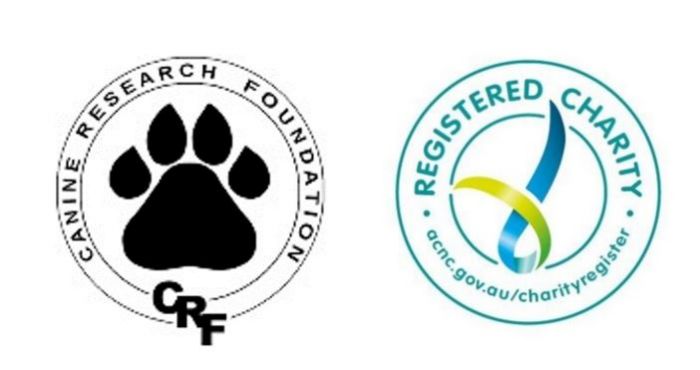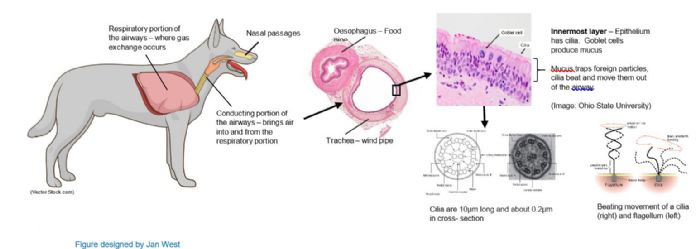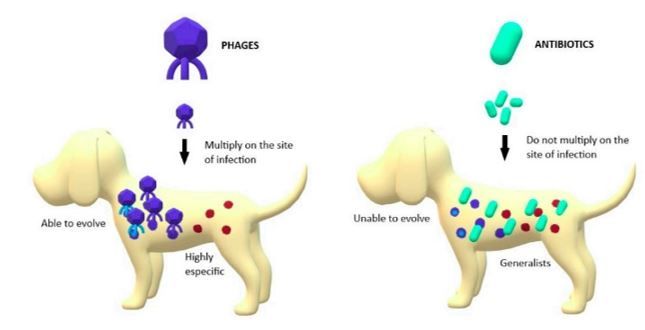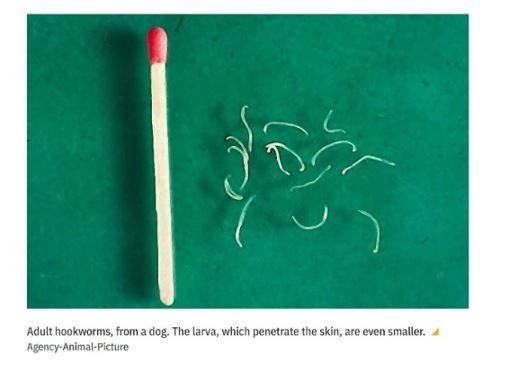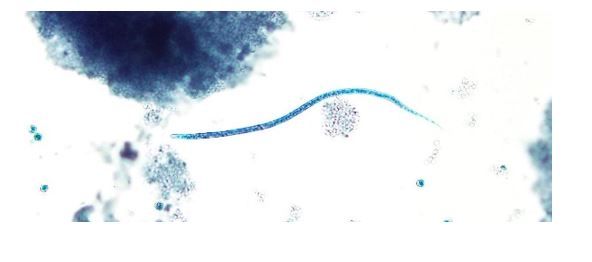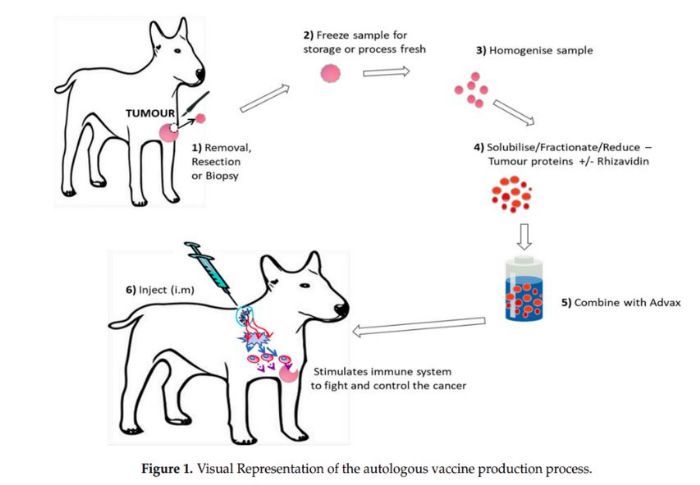2023 Funded Projects
Canine Research Foundation Grants for 2023
About Us
The Canine Research Foundation is a Public Charitable Trust to support research conducted at Australian universities from funds generated via the levy on puppy registrations from the State Bodies, fund raising functions, tax-deductible donations and bequests from the public. Up until 2019 each puppy that was registered in Australia $2 was donated to the Canine Research Foundation (passed at the AGM). As of 2019 funding to the CRF from puppy registrations is received only from Dogs Victoria. The CRF thanks Dogs Victoria for their continued support.
The CRF reports all financials annually to the Australian Charities and Not for Profits Commission and this information can be found at: https://www.acnc.gov.au/charity/ and then search for “Canine Research Foundation”
The purpose of the Foundation is to provide funding for research directed at improving canine health. Canine health refers to research into disease and disease related processes, and/or the prevention of injury and/or disease. In the scheme of grants these are small grants but are an important funding source that may assist researchers set up a protocol or do some early investigative work that will provide evidence that will support applications to larger funding bodies such as the Australian Research Council (ARC).
The CRF supports research to improve canine health. Just to clarify the CRF does not support research using dogs as model animals for medical research projects. The types of samples collected and used in the projects involve blood samples, tissue samples from patients with diseases, samples collected during the normal diagnostic processes involved with treating the dogs, urine samples, DNA samples, imaging including X-rays and MRI and demographic data about occurrences, frequency of diseases and behavioural observations.
We received 8 applications for funding in 2023 and 6 of these projects were successful in receiving funding. The CRF does fund research into breed specific health issues and most of the time this research does have application to other breeds. A summary of the successful applications is summarised below. In addition to providing funding the CRF in a partnership with Deakin University provides placement and project opportunities for science students completing Bachelor degrees in Science. Some examples of resources created by the students as part of their placements are – the Canine Research Foundation Logo, the booklet celebrating 25 years of the CRF (available on our website (https://oz.dogs.net.au/crf) and copies available in the Dogs Victoria library) and more recently articles of interest to the dog owner about canine health. These articles are available on our website and Facebook pages.
Grants successful in the recent round to commence in 2023
Primary Ciliary Dyskinesia in English Cocker Spaniels
Dr Claire Wade – University of Sydney
Funding: $15,000
Primary ciliary dyskinesia (PCD) is an inherited disorder that affects the dog’s ability to properly clear mucous from the airways, leading to symptoms including rhinosinusitus, bronchitis, bronchiectasis, and bronchopneumonia. Defective function of the cilia can also negatively impact fertility (particularly viability of semen). Our team is currently working with a Cocker spaniel breeder in Melbourne to investigate the possibility of primary ciliary dyskinesia (PCD) in three related female puppies which have all had chronic rhinitis/bronchitis since day three of life. The results of high speed video microscopy were strongly suggestive of ciliary dysfunction. Electron microscopy results are available for one of the pups (results support PCD) and pending for the two other pups. These tests are currently being performed through the Royal Children's Hospital in Melbourne. Access to appropriate diagnostic tests (eg. Electron microscopy) is limited and this condition is likely being underdiagnosed in the Cocker Spaniel breed. Our collaboration will use diagnostic information and DNA from these pups and others in the family to map the genetic cause of the observed defect. The aim is to generate a genetic test for this problem.
From the CRF: This grant is a great collaboration between the Cocker Spaniel Club of Victoria and the Dr Wade’s research group at the University of Sydney.
This disease presents as a respiratory disease but can also result in fertility issues (in particular with the motility of sperm). The major structure affected are tiny hairlike structures called cilia that are not visible to the human eye. Cilia line the respiratory and their beating action moves inhaled particles and mucus out of the system keeping it free of debris.
When the cilia are defective and do not work properly mucus accumulates in the respiratory airways as the cilia cannot swept out the debris. This can result in mucus accumulation, infections and inflammation. Bronchiectasis, Rhinosinusitis (RS) and Bronchopneumonia can result. All of these condition are inflammatory and can result in not “getting enough air” as gas exchange is compromised.
Whilst respiratory symptoms are the most prominent, PCD can result in infertility issues because cilia lines the reproductive tract in the bitch and helps move the fertilized ovum along the fallopian tube to the uterus after fertilization and the “motor” for the sperm is composed of a flagellum which has a similar structure to a cilia so sperm motility can be compromised.
Want to read more
Bell, ET, Griffin, P, Martinellob, P and Robinson, P (2016) Primary ciliary dyskinesia in two English Cocker Spaniels Australian Veterinary Journal Volume 94, No 5, May 2016
Bacteriophage-based treatment of canine hard-to-treat urinary tract infections
Dr Carolina Venturini – University of Sydney
Funding: $14,400
Hard-to-treat chronic bacterial diseases, such as recurrent urinary tract infections (UTIs), can be a serious problem in dogs, compromising quality of life and imposing a serious burden on veterinary practices and owners. The increasing frequency of multidrug resistance in the bacteria that cause such infections further aggravates this problem, and novel non-invasive antimicrobial approaches are needed as alternative to traditional antibiotic therapy. Bacteriophages (or phages) are viruses that specifically kill bacteria, even those resistant to antibiotics, without harming the mammalian host. They are abundant in nature and have been trialled successfully to control human infections. We have an extensive collection of phages against the primary pathogens capable of causing infections in dogs (e.g., Escherichia coli). In this project, we aim to 1) identify the main bacterial types that cause hard-to-treat canine UTIs and 2) define sets (cocktails) of phages from our collections that, with or without antibiotics, actively eliminate these specific pathogens in vitro and ex vivo. This project will allow us to determine the epidemiology of canine UTI pathogens and define and test phage-based preparations for therapeutic use in afflicted dogs. This work will make a significant contribution towards advancing alternative antimicrobial treatments to manage hard-to-treat canine infections
From the CRF:
When used against pathogenic bacteria phages are capable of multiplying at the site of infection – antibiotics are not able to do this. Phages can evolve with bacteria (ie they can change); antibiotics are static drugs. Phages are highly specific for their targets and antibiotics are more generalist.
Image from Ferriol-González and Domingo-Calap (2021)
This project has the potential to design phages that can target specific type of drug resistant bacteria responsible for urinary tract infections in dogs.
Read more:
Ferriol-González, C.; Domingo-Calap, P. Phage Therapy in Livestock and Companion Animals. Antibiotics 2021, 10, 559. https:// doi.org/10.3390/antibiotics10050559
Surveillance of efficacy of commonly used wormers against canine hookworms
Dr Swaid Abdullah – University of Queensland
Funding: $14,827
Canine hookworms are one of the most prevalent and pathogenic gastrointestinal parasites infecting pet dogs. Hookworm infection in dogs leads to iron-deficiency anaemia, protein loss, and enteritis. As a principle means for treatment and prevention of hookworms in dogs, pyrantel or benzimidazole (BZ) drugs are used on a regular basis. These drugs are economical and widely available and veterinarians, pet owners and facility managers employ these drugs on the notion that they are safe and highly effective against hookworms. However, sustained use of these drugs over the last half a century, raises the possibility that drug-resistant worm isolates have been selected over time. Resistance to multiple drug classes has already been confirmed in canine hookworms around the world, including in Australia. A pyrantel efficacy study, conducted in Brisbane in 2007, found that the efficacy of the drug against a hookworm isolate was only 25.7%. Aside from this, little more is currently known about the resistance status of canine hookworms to the pyrantel, and even less is known about efficacy of BZ drugs. This is not only a concern for canine health but could presents serious public health risk. Hence, there is a significant need for a deeper investigation into the likelihood of anthelmintic resistance among canine hookworms. This study will not only provide data on the prevalence and level of resistance in canine hookworms but also unravel the resistance-conferring mutations in worm populations; building towards a sought-after rapid diagnostic test to undertake much larger field surveillance programs in future.
From the CRF: Hookworms are one of the most prevalent and pathogenic gastrointestinal parasites infecting pet dogs. Hookworms reside in the gastrointestinal tract and feed on blood; thus an infestation can result in iron-deficiency anaemia, hypoalbuminemia, and enteritis. A common treatment and prevention of hookworms in dogs are the Pyrantel or Benzimidazole (BZ) drugs particularly in shelters and kennels. These drugs are inexpensive, widely available and used. It is not known however if sustained use of these drugs over the last half century, particularly in intensive environments such as shelters, raises the possibility that drug-resistant worm isolates have been selected over time. Resistance to multiple drug classes has already been confirmed in canine hookworms around the world, including in Australia
Good summary of hookworm
https://mydogsymptoms.com/drug-resistant-canine-hookworms/
This site has a very informative animation on the life cycle of the hookworm
De novo sequence and assembly of the Chow Chow genome
Professor Bill Ballard – La Trobe University
Funding: $12,130
Simple diseases of dogs have, by-and-large, been identified. As we move forward it is becoming increasingly evident that high quality, breed specific, genome-wide assemblies are required to unravel complex and breed specific diseases. As an example, it is simply not possible to identify a genetic mutation in a target breed if the reference assembly does not have the mutated region/ gene.
The current project aims to de novo sequence and assemble the genome of a purebred registered female Chow Chow. A de novo assembly is constructed without reference to any other genome and is therefore unbiased. They are particularly useful when large chromosomal events (inversions, duplications etc) hinder identification of mutations associated with breed specific diseases. The Chow Chow was selected because it is an ancient breed, well known to have a multitude of diseases including hip dysplasia, patella luxation, cataracts and entripion.
Over the next years I propose to prioritize obtaining a de novo genome assembly from at least one breed from each of the major show dog groups – FCI, American and Australian. Professor Brian Corbitt has advised me on the selection of the specific breeds (Chow Chow is in the American non-sporting group which is not covered by a currently de novo assembled genome). I include each of the possible groupings because they give different perspectives of the possible relationships between breeds.
From the CRF
Professor Bill Ballard is a world leader in Ecological Genomics (Genetics). In 2017, the team led by Bill won the Pac Bio "World's Most Interesting genome Competition" with the Desert dingo and Alpine dingo genomes. These are are now available at NCBI. Bill's group also has an interest in canine genomics generally. They have sequenced the genome of a German Shepherd called Nala and a Basenji called China. Several additional breed genomes are planned over the next 12 months.
Read more about this research: https://scholars.latrobe.edu.au/bwballard
Molecular markers associated with drug resistance in Australian canine heartworms
Professor Jan Slapeta – The University of Sydney
Funding: $14,300
Canine heartworm disease is a potentially deadly cardiopulmonary disease that affects dogs in Australia each year. For the past 30 years, the use of preventative drugs has successfully reduced the prevalence of canine heartworm infection. However, the re-emergence of heartworm infection in Queensland in 2016 and the confirmation of drug-resistant parasites in the US makes us question whether drug-resistance is already existing here in Australia. In this project, we aim to generate local representative genomes of canine heartworm and define the genetic diversity of the parasite along the east coast from Cooktown to Sydney. Using the new genomes, we aim to identify local genetic markers which can then be developed into a genetic tool for the detection of drug-resistant canine heartworms in Australia. Clinicians and researchers across Australia can utilise this genetic tool to test for drug resistance in canine heartworm patients. This approach will lead to improved surveillance, early detection, and rapid development of control measures to limit the spread of resistant parasites.
From the CRF: Jan Slapeta is a Professor of Veterinary and Molecular Parasitology at the University of Sydney.
For more information on heartworm: https://www.australiandoglover.com/2022/03/april-is-heartworm-awareness-month.html
Combination immunotherapies for the treatment of solid canine cancers
Prof Rachael Allavena - University of Queensland
Funding: $11,842
Approximately 1 in 3 pet dogs will be diagnosed with cancer in their lifetime. Canine cancers can be treated with surgery, chemotherapy and radiotherapy, but expense and availability may prevent many dogs from receiving standard of care treatment. Novel immunotherapies are another potential weapon to fight canine cancer. The focus of the Allavena research group is to explore the potential of bacterial and plant-derived immunomodulators to induce antitumor immune responses, prolonging survival time and inducing tumour regression in pet dogs with cancer. Our cancer vaccines and therapies provide a danger signal which wakes up the dog’s immune system, so it recognises the invading cancer and starts to kill it. Our goal has been to develop cheap and easily applied therapies, amenable to delivery in general practice at an affordable cost. Our goal is to optimise these therapies for sole or combination with standard of care treatments, giving each pet dog the best chance to fight its cancer. We have made rapid progress with establishing safety, efficacy, and proof of concept in an autologous (personalised) anticancer vaccine with a delta-inulin adjuvant, and an easily administered cost-effective intratumoral adjuvant treatment. Both models are published, and we are currently working on analysis of how the treatments work and predictors of which dogs respond best to the treatments. In this proposal we are seeking funding to test a combination of both therapies and optimise the treatment regimes to improve patient responses whilst still maintaining minimal side effect
From the CRF: This work builds on work previously published by this research group on autologous cancer cell vaccines. These types of vaccines are personalised immunotherapeutic options for solid and haematological malignancies that use the dog’s own cells to arm an immune response.
(Figure from Weir et al., 2018)
Weir, C; Oksa, A; Millar, J; Alexander, M; Kynoch, N; Walton-Weitz, Z; Mackenzie-Wood, P; Tam, F; Richards, H; Naylor, R; Cheng, K; Bennett, P; Petrovski, N; Allavena, R. The safety of an adjuvanted autologous cancer vaccine platform in canine cancer patients. Veterinary Sciences. 2018, 5, 87;
Attention Breed Clubs
If there are any health issues in your breed that you would like to see more research into please contact the CRF. We are happy to discuss possibilities.
The Irish Wolfhound Club of Victoria approached the Canine Research Foundation wanting to know more about osteosarcoma in dogs. The CRF put the club in contact with Professor Rachel Allavena from the University of Queensland who kindly gave a presentation at the Irish Wolfhound Club of Victoria’s AGM in 2022. Prof Allavena develops immunotherapies for cancers as a treatment for pet dogs (and a recipient for funding in 2023 from the CRF).
Assoc Prof Jan West
Deakin University
Trustee of the Canine Research Foundation
December 2022
Canine Research Foundation
Website: https://oz.dogs.net.au/crf
Facebook: https://www.facebook.com/AustralianCanineResearchFoundation/
Current trustees of the Canine Research Foundation are:
Mr Roger Bridgford (President) – All Breeds Judge (Taumac Golden Retrievers)
Ms Louise Brodie (Britebay Cocker Spaniels)
Professor Brian Corbitt (All Breeds judge and Historian)
Dr Steve Holloway (Veterinarian and Researcher
Mr John Chapman (Lawyer, Tollerpoint Nova Scotian Duck Tolling Retrievers).
Contact Details
Chair Sue Anderson Liaison Officer: A FullerSeaford, VIC, Australia

